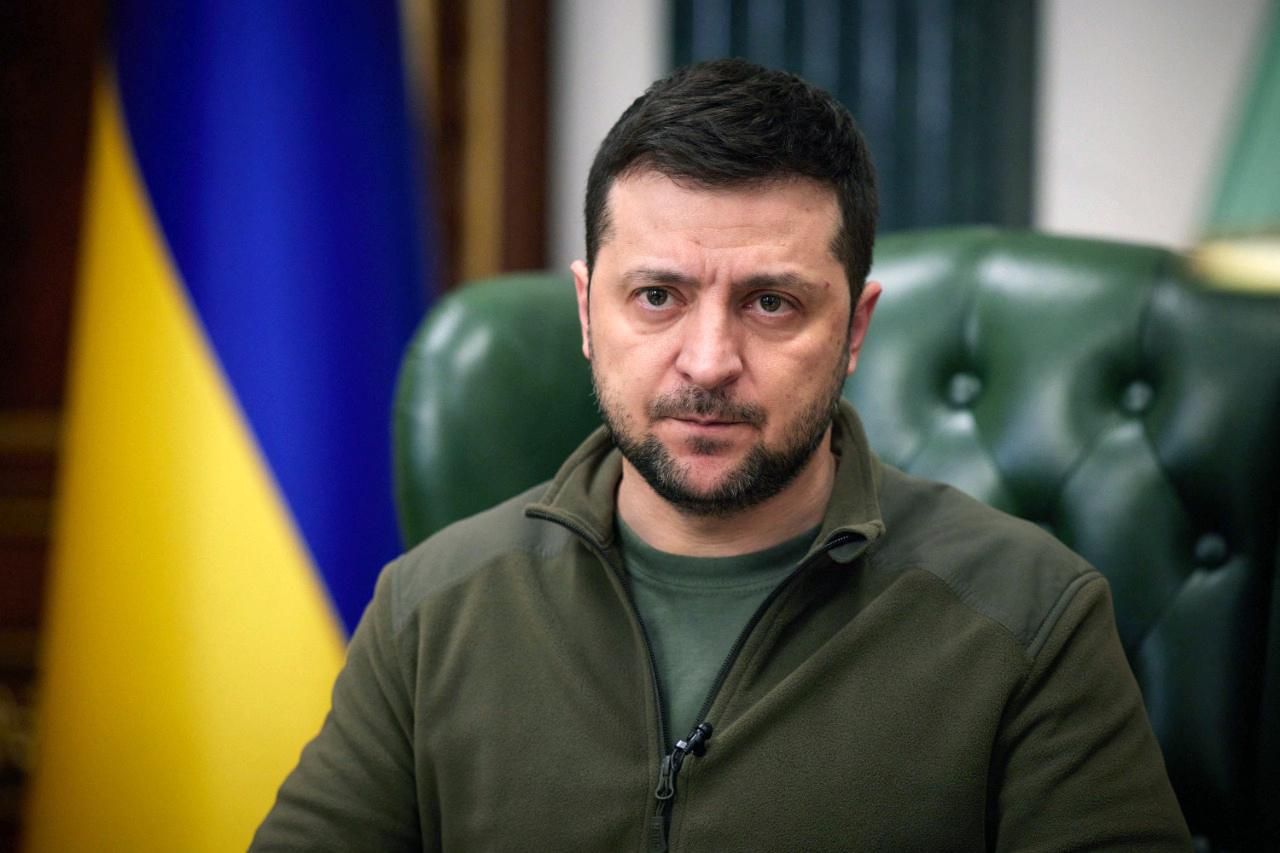As the war in Ukraine grinds on, the United Nations says 2.8 million civilians have now fled the country. Millions more remain trapped in harm’s way. Cities like Kharkiv, Mariupol, and many others are running out of food, fuel, and electricity. The port city of Odessa is building defenses. But it’s in Kyiv, the capital, where the war is coming to a head. Russian forces are getting ready for a major assault, Ukrainian soldiers are preparing for a fight, and civilians are bracing for impact. On Monday, the city suffered the biggest Russian artillery barrage so far.
The best-known person in Kyiv at the moment is Ukrainian President Volodymyr Zelensky, and his personal fate has become an important variable in what happens after the fighting ends. Here are four scenarios:
- Zelensky escapes a Russian capture of Kyiv and, with recognition from most governments as Ukraine’s legitimate president, leads a government in exile – either from unoccupied Western Ukraine or from abroad.
- Zelensky is killed in the fighting and becomes a martyr of Ukrainian independence.
- Russian forces take Zelensky prisoner, and his freedom becomes a diplomatic bargaining chip.
- Russian forces fail to take Kyiv, and Zelensky’s status as national hero and international icon of resistance is reinforced. Russia’s President Putin is forced to bargain with him.
Each of these scenarios carries long-term risks. And each is being discussed behind closed doors in Kyiv, Moscow, Washington, and across Europe.
Monday’s most important conversation outside Russia and Ukraine took place in Rome, where US National Security Adviser Jake Sullivan sat down with senior Chinese diplomat Yang Jiechi. The backdrop for this conversation includes internal debates in Washington and Beijing. In the US, the arguments are about whether courtship or pressure is more likely to persuade China to keep its distance from Russia. In China, the discussion is about how openly China can back Russia without permanently antagonizing its lead trade partners, the EU and US.- Eastern European leaders visit Kyiv in unprecedented show of support - GZERO Media ›
- Zelensky plea for additional Ukraine support puts US in a bind - GZERO Media ›
- Zelensky knows how to talk to the West - GZERO Media ›
- Volodymr Zelensky: TIME's 2022 Person of the Year - GZERO Media ›
- Volodymr Zelensky: TIME's 2022 Person of the Year - GZERO Media ›
- Surprise, Vladimir Putin: Why Ukrainians resisted Russian "liberation" - GZERO Media ›
More For You
Ian Bremmer sits down with former US Ambassador to NATO Ivo Daalder to unpack a historic shift in the transatlantic alliance: Europe is preparing to defend itself without its American safety net.
Most Popular
Think you know what's going on around the world? Here's your chance to prove it.
Argentina, Armenia, Belarus, Egypt, Indonesia, Jordan, Pakistan, Paraguay, Vietnam – to name only a few.
A poster featuring Andrew Mountbatten-Windsor, formerly known as Prince Andrew, is installed on a sign leading to the parking area of the Sandringham Estate in Wolferton, as pressure builds on him to give evidence after the U.S. Justice Department released more records tied to the late financier and convicted sex offender Jeffrey Epstein, in Norfolk, Britain, February 5, 2026.
British police arrested former Prince Andrew Mountbatten-Windsor today over allegations that in 2010, when he was a UK trade envoy, he shared confidential government documents with convicted sex offender Jeffrey Epstein.
